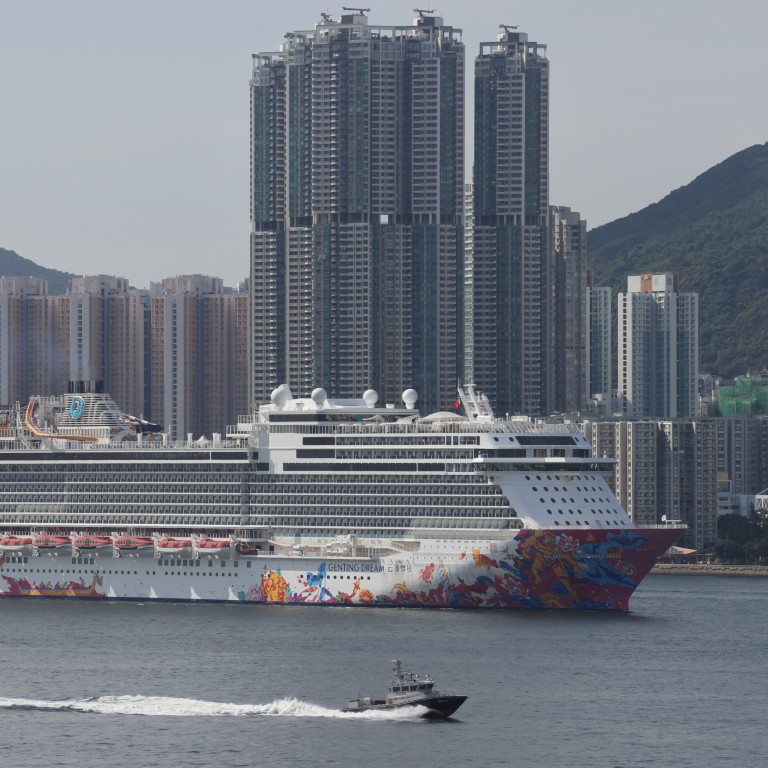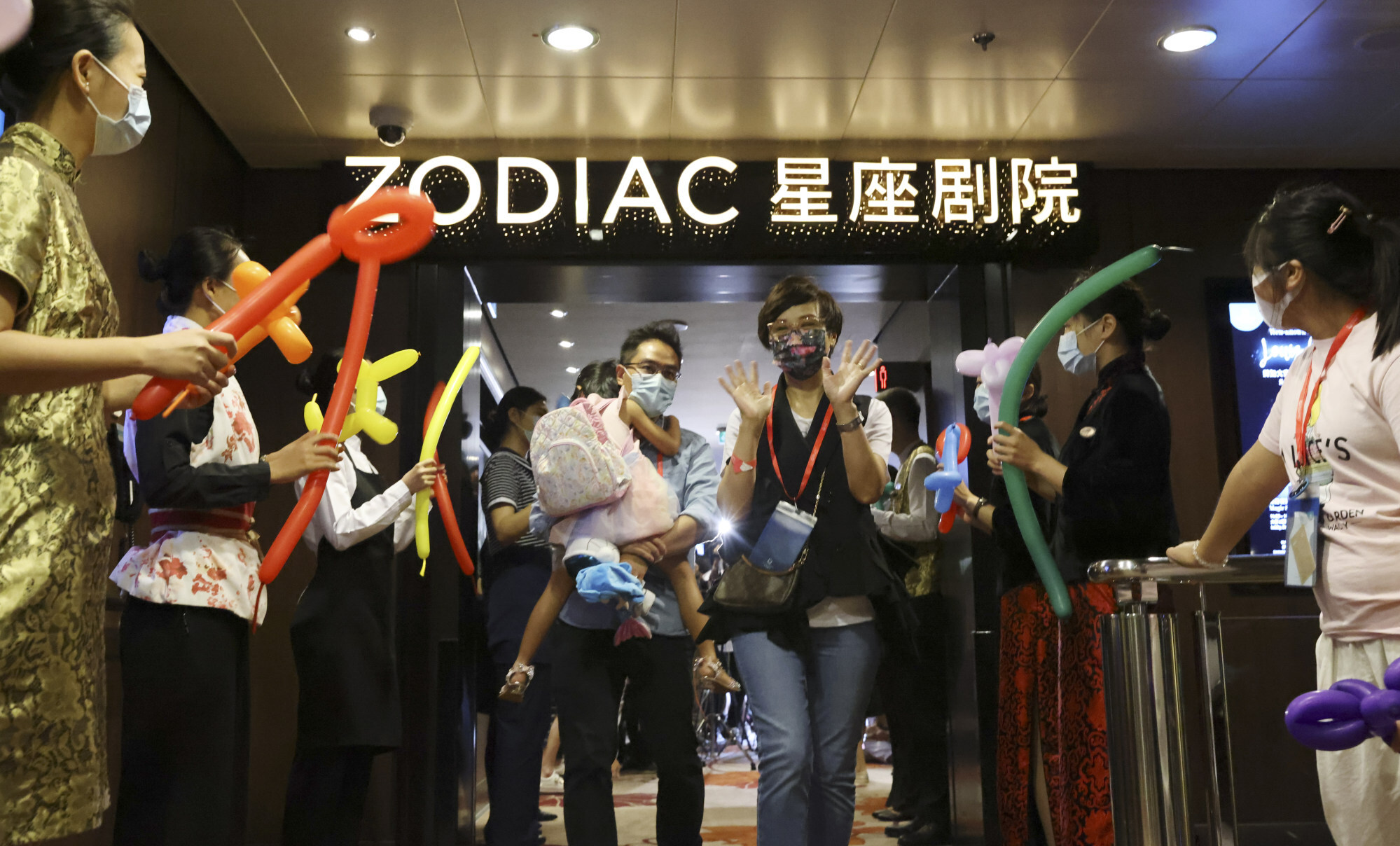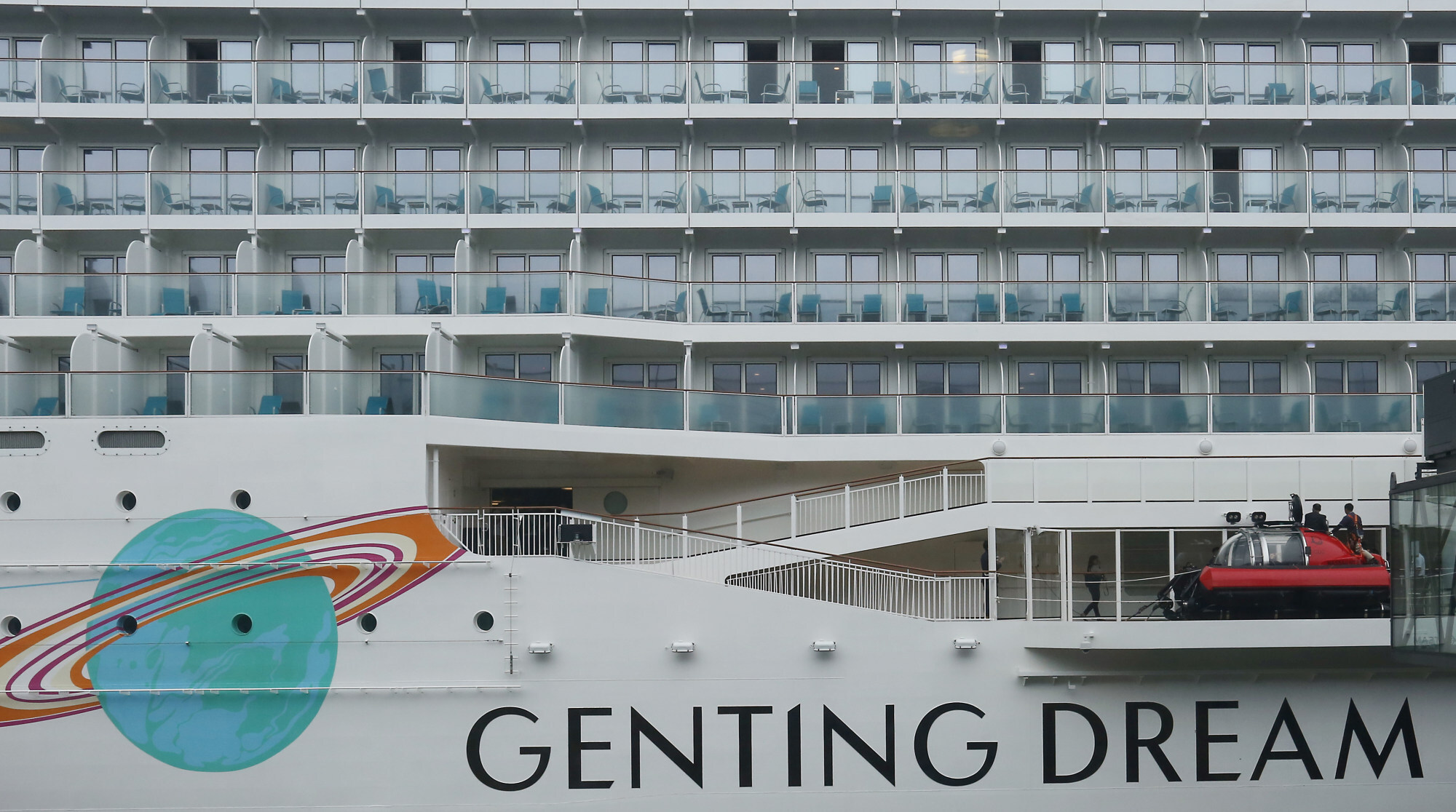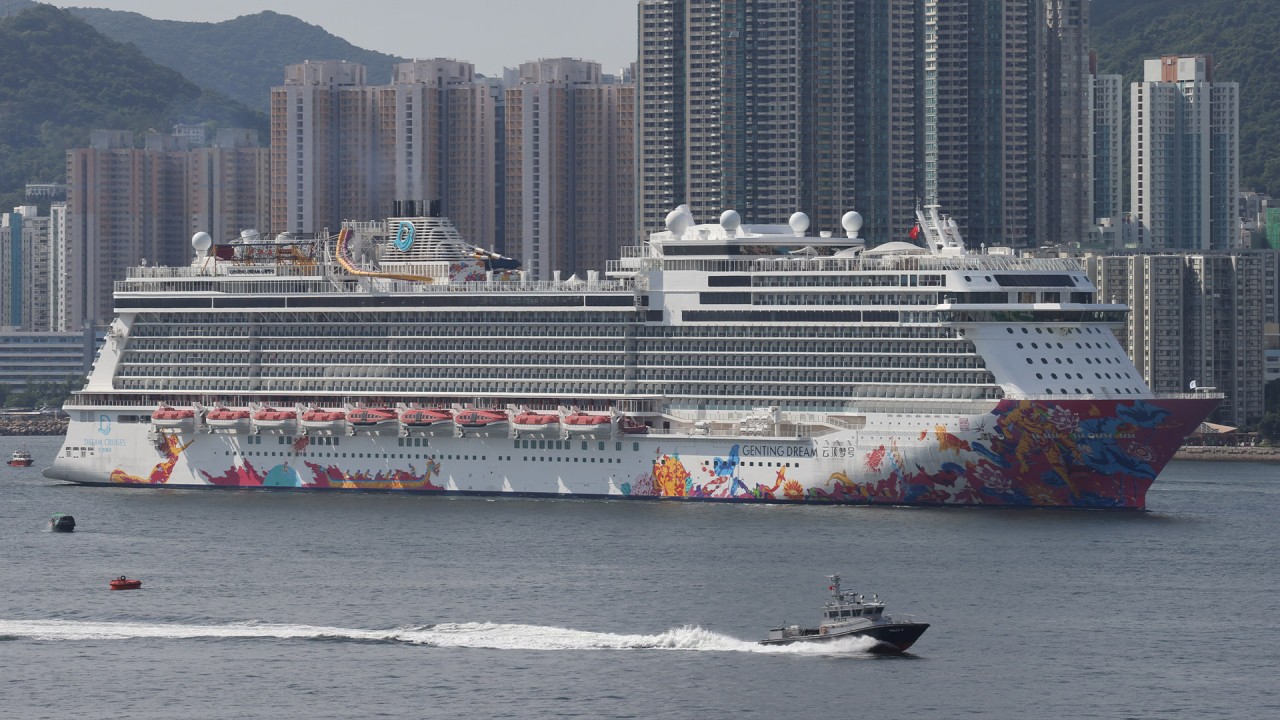
Genting Hong Kong names liquidators, as US$2.78 billion of debt triggered by bankrupt shipyard forced ‘Cruise to Nowhere’ operator to wind up
- The owner of Dream Cruise Holding appointed Alvarez & Marsal’s Edward Simon Middleton and Tiffany Wong Wing-sze as provisional liquidators
- Genting Hong Kong’s winding-up petition and appointment of provisional liquidators will be heard by the Supreme Court of Bermuda at 2.30pm local time on January 20
Genting Hong Kong has filed a winding-up petition in Bermuda, after the bankruptcy of its shipyard in Germany triggered US$2.78 billion of debt and forced Asia’s largest operator of sea cruises to be liquidated.
The owner of Dream Cruise Holding appointed Alvarez & Marsal’s Edward Simon Middleton and Tiffany Wong Wing-sze as provisional liquidators, according to a filing on Wednesday to the Hong Kong stock exchange. Alvarez & Marsal declined to comment when contacted by the Post.
“Certain business activities, including but not limited to the operations of cruise lines by Dream Cruises, shall continue in order to preserve and protect the core assets and maintain the value of the [company],” Genting said, as financing is anticipated to dry up by the end of January. “However, it is anticipated that the majority of the existing operations will cease to operate.”
Genting Hong Kong’s winding-up petition and appointment of provisional liquidators will be heard by the Supreme Court of Bermuda at 2.30pm local time on January 20 . Trading in the company’s shares rose 5 per cent to 41.5 Hong Kong cents on Monday before trading was halted on Tuesday.
“It is a shock to me,” said Charles Tam, a loyal customer of Genting cruises for over 10 years who had taken a trip with his wife every month. “I had booked three trips with Genting cruises in January and February, and all needed to be rescheduled to a later stage due to the fifth wave of [Covid-19].”
“I worry now that if it goes bust, I may not be able to get a refund on the money I have paid for the tickets and my membership awards may no longer be valid.
“Most importantly, I can no longer enjoy the very good food and services on board. I hope to see it rescued eventually so the cruises can go on.”
The liquidation is the biggest casualty in Asia’s tourism industry, as the Covid-19 pandemic, now in its third year, continues to wreak havoc on global travelling. The company’s stock has lost more than half of its value since 2018, wiping out US$766 million of capitalisation, during the pandemic.
Genting Hong Kong, which also owns and operates the Resorts World Manila casino and resort in the Philippines, reported a US$238.3 million loss in the first half of 2021, in addition to a US$1.72 billion setback in 2020.

The company, 76 per cent-owned by the Malaysian tycoon Lim Kok Thay, operates three cruise lines: Dream Cruises, Crystal Cruises and Star Cruises.
Stranded by travel restrictions, the cruise line had been operating Cruise to Nowhere packages since July 2021, sailing around the waters of Hong Kong without calling on any other port, allowing passengers to enjoy the meals, entertainment and amenities on board as substitutes for going on a destination cruise.
A “seacation” package lasting two to four nights costs from HK$500 per person to as much as HK$28,776 (US$3,693) for a suite. Each vessel can accommodate up to 3,000 passengers, although the operator is only filling up to 75 per cent capacity to comply with Covid-19 social-distancing rules. As many as 1,070 passengers were on one such cruise in August.

The company’s cruises in Taiwan and Hong Kong have been suspended since early January amid a fresh outbreak of Covid-19, though operations in Singapore and Malaysia are still sailing normally, according to the company’s ticketing staff.
Genting Hong Kong is keeping its cruise schedule at three trips per week in February and March, according to the staff. The next cruise, due to depart from Hong Kong’s Kai Tak terminal on board the Genting Dream on February 4, is priced from HK$4,376 for the cheapest cabin, up to HK$28,776 for a suite. The next sailing is scheduled for February 6.
Passengers who are unable to sail because of Covid-19 travel restrictions can choose to reschedule their trips to a later date or seek refunds, according to the staff.
Tam said that before the pandemic the Genting cruises were always full as they set sail from Hong Kong to destinations like Japan, Vietnam and various cities in mainland China.
“The Covid-19 changed everything. The cruise now can only have Hongkongers on board and no other tourists. The gambling tables on the cruise are quiet now as Hongkongers like to enjoy good food and do not pay much attention to the gambling facilities.”
Hong Kong’s ‘cruise to nowhere’ proves a hit with stranded expats
Genting Hong Kong faces an immediate debt payment of US$2.78 billion after its shipyard in northeastern Germany filed for bankruptcy last week, as a bailout by the German government fell through.
“The board believes that the appointment of the joint provisional liquidators is essential and in the interest of the company, its shareholders and its creditors to maximise the chance of success of the financial restructuring and to provide a moratorium on claims by any of its unsecured creditors and to seek to avoid a disorderly liquidation of the company,” Genting’s chairman Lim Kok Thay said in the company’s stock exchange filing.


